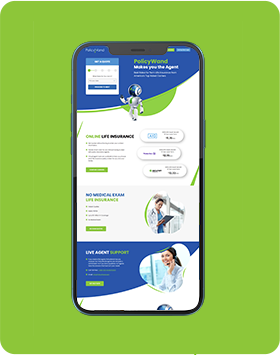How AI Is Disrupting the Insurance Industry
How AI Is Disrupting the Insurance Industry
There’s a reason life insurance underwriters, agents, and customer service reps are venturing out from their statistics-laden, fluorescent-bathed hovels to cheer their industry’s latest disrupter, algorithmic underwriting.
Artificial Intelligence algorithms have transformed traditional error-prone processes into an efficient, streamlined experience for both them and their customers.
How AI Improves the Insurance Life Cycle
AI machine learning, also called accelerated or automated underwriting, allows insurance companies to collect the kind of data necessary to provide predictive analysis about mortality and financial risks through “insurtech” software that streamlines the insurance process from quote to claim. This helps insurers make more granular decisions about the risk you pose and the premium you will pay.
The remarkable thing about machine learning is that the technology continues to refine the data it’s collecting in real time. The more data collected, the smarter the system and the more accurate the decision-making becomes.
What’s even cooler is that a behavioral intelligence component uses “digital body language” such as keyboard hesitation and backspacing to determine policy pricing and protect against fraud to weed out the application liars from the truth-tellers.
And it helps identify complex risk issues using third-party data, like pharmacy prescription histories and credit agencies, electronic medical records, and the like.
How AI Benefits Insurance Providers
Insurtech technology is flexible enough to tailor to any business model and allows underwriters to work quicker and more efficiently so they can turn their attention to strategy and value-added products.
To illustrate, insurance companies currently depend on just a few questions like age, gender, and smoking and drinking habits to rank people in categories standard, standard-plus, preferred, and preferred plus, which determine premiums. AI can drill down a bit deeper on the front end to provide more tailored and accurate predictions about mortality and lapse probability.
Behavior technology detects fraud by issuing red flags based online behavior. Those alerts send the applicant to a live agent who can further vet them over the phone and in some cases send them for a medical exam before granting the policy.
The system also scales for both its intuitive data library and revenue growth generated outpacing the costs of doing business. This enables agents to provide prospects with quicker answers and reduces human errors.
How AI Affects Life Insurance Policyholders
Chatbots already create a more streamlined quote process, taking care of simple data collection so agents can have a more substantive conversation with prospects later. Insurtech enables them to offer life insurance products more tailored to your individual needs rather than the current one-size-fits-all options.
Insurtech technology also works on the back end, providing family members with a quicker insurance claims process to get the financial support they need to them quicker.
And it saves everyone money by reducing rising insurance costs due to fraud, which increases trust between policyholder and provider.
Because in the end, the better the data, the better the decision-making.







